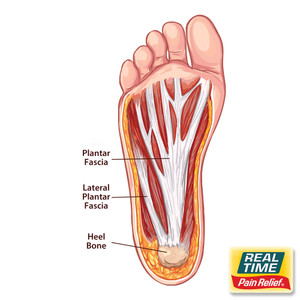Can Stress Trigger Chronic Pain?
28th Jul 2023
Can Stress Trigger Chronic Pain?
Most of us deal with stress at one time or another. Whether it is relationship issues, work worries, or financial concerns, stress is sometimes hard to prevent.
We know that too much stress can be bad for our health. According to the Mayo Clinic, stress can lead to depression, fatigue, and sleeping problems. But stress may also trigger chronic pain.
The Stress and Pain Connection
Unfortunately, chronic pain is a widespread problem. According to research published in the journal, Chronic Stress, about 20 to 30 percent of adults have chronic pain. Research has indicated that stress may be a contributing factor or the main trigger of chronic pain in some people. Both stress and pain may have an impact on the other, which creates a cycle that leads to chronic stress and chronic pain.
Although stress and chronic pain are associated, the exact reason stress may trigger pain is not entirely understood. But there are a few theories.
According to one theory, when you feel stressed, it often causes your muscles to become tense. When stress is chronic, the muscles are also often tight and taut for extended amounts of time, which contributes to pain, such as headaches, back discomfort, and muscle soreness. Over time, when the muscles are tense, it may trigger other stress-related disorders in the body that cause pain.
It is thought that stress also affects the production of various hormones, which might play a role in the inflammatory response and contribute to pain.
Research published in the journal Physical Therapy studied the effect of chronic stress on the level of the hormone cortisol. Cortisol acts as an anti-inflammatory in the body. In acute episodes of stress, cortisol increases. But when stress becomes chronic, researchers found that cortisol dysfunction may occur, which leads to impaired production. If cortisol production is disrupted, it may lead to inflammation and increased pain.
The way we perceive pain is regulated by our nervous system. Our brains interpret pain signals. When you are stressed, your brain has a harder time filtering the pain signals, and an increase in pain may be interpreted.
Regardless of the exact physiological mechanism, stress may trigger chronic pain or can be a factor in worsening pain in conditions, such as lower back pain, fibromyalgia, and joint pain.
Tips to Reduce Chronic Stress
It is often challenging, or even impossible, to avoid all stress in our lives. But there are things we can do to reduce chronic stress from developing, including the following suggestions:
#1) Get Enough Sleep
Although it is easier said than done, getting enough sleep is vital to reduce stress. Sleep problems are widespread among people with both chronic pain and stress. Good sleep hygiene practices, such as maintaining a set wake/sleep cycle, avoiding caffeine, and relaxing before bedtime, can help.
#2) Exercise
A significant amount of research indicates that regular exercise can boost mood and decrease stress. Find an activity you enjoy and try to get at least 20 to 30 minutes of exercise on most days of the week.
#3) Learn Relaxation Techniques
Learning ways to relax is essential for those with chronic stress. Various forms of relaxation techniques are available that may help reduce stress, including progressive muscle relaxation, breathing exercises, and meditation. Try different methods until you find something that works for you. Consistently practicing relaxation exercises is key to noticing results.
#4) Try Cognitive-Behavioral Therapy
Cognitive-behavioral therapy is helpful in treating several conditions, including pain, anxiety, and depression. Cognitive-behavioral therapy involves learning to identify thought processes that contribute to anxiety and stress and to develop new ways of thinking.
Tips to Decrease Chronic Pain
Lowering your stress levels may help reduce chronic pain or at least make it easier to deal with. Additionally, there are other things you can do to decrease chronic pain. Consider the following tips:
#1) Apply a Topical Pain Relief Lotion
Topical pain relief lotions are an excellent way to reduce pain without taking oral pain medications that usually have side effects. Select a pain relief lotion that contains ingredients, such as menthol, willow bark, calendula, chondroitin, and glucosamine.
#2) Try Massage
Various types of therapeutic massage may help decrease pain and promote relaxation. For example, trigger point therapy, deep tissue massage, and Swedish massage use methods that manipulate the muscles, tendons, and skin and may reduce pain and improve movement and function.
#3) Take a Bath with an Arnica Infused Bath Bomb
A warm bath with an Arnica infused bath bomb not only helps reduce muscle stiffness, pain and bruising but also helps promote relaxation and stress reduction. Fill a tub with water at a comfortable temperature and add a bath bomb. Soak in the bath for about twenty minutes. Select a bath bomb with ingredients like Epsom salt, chamomile, peppermint oil, and arnica.





